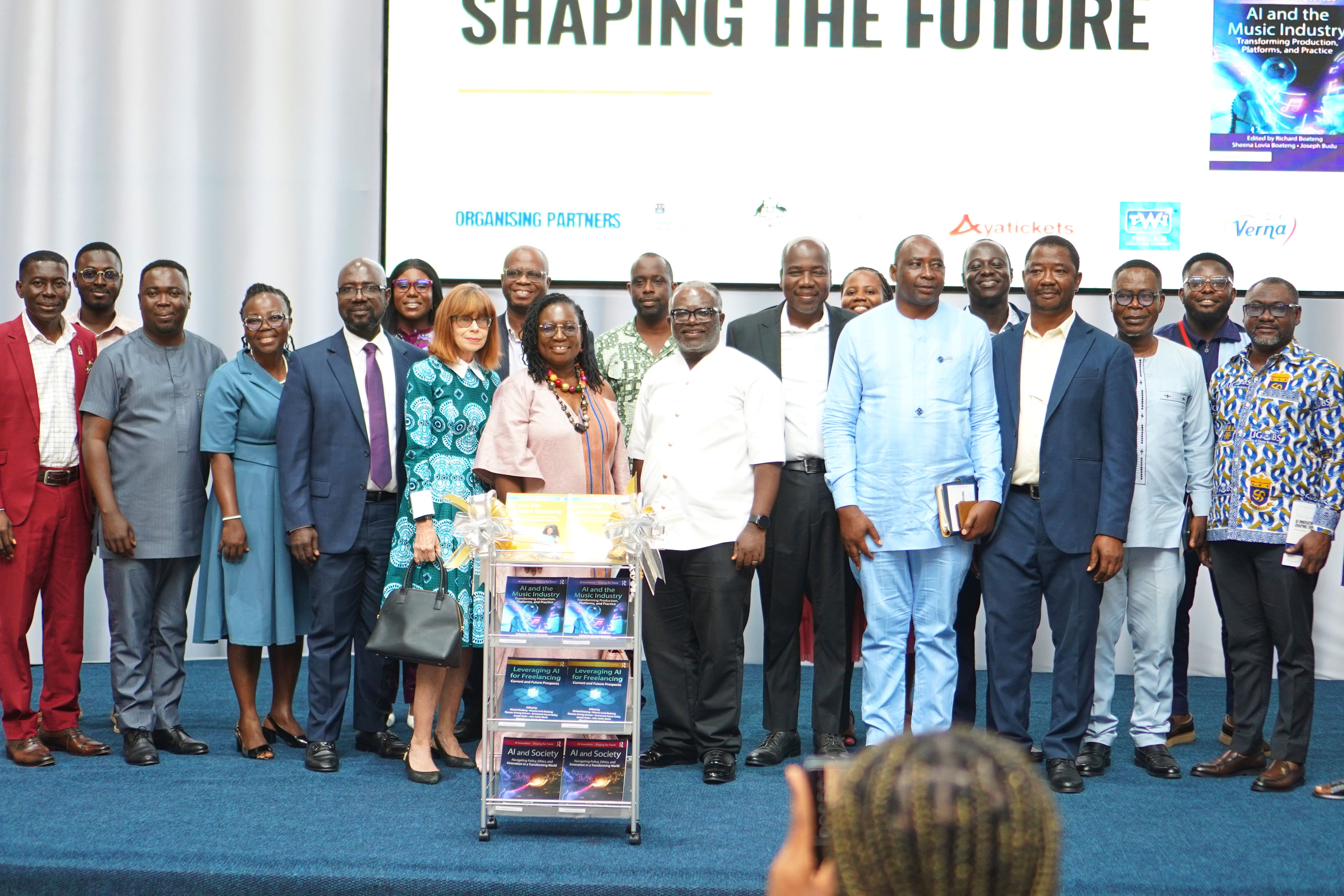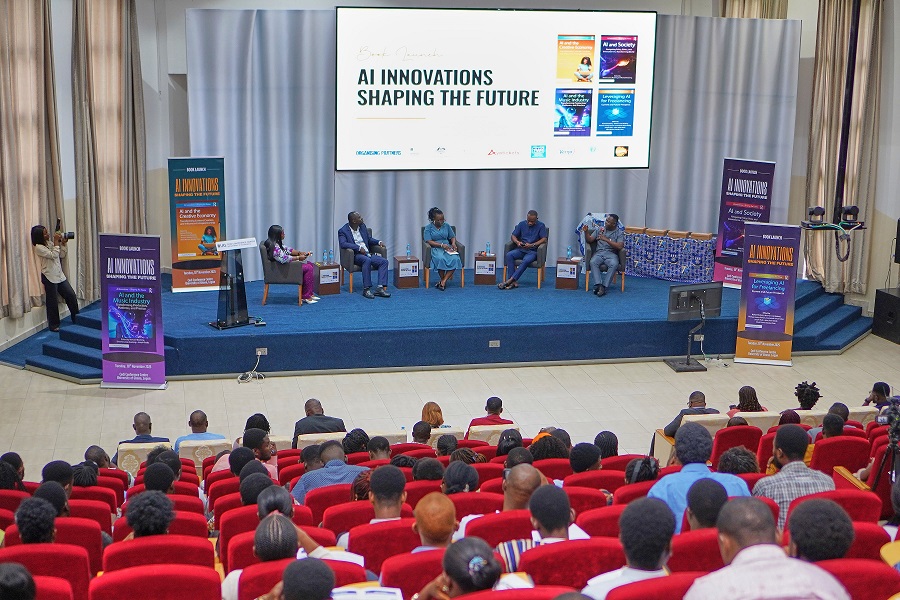
UGBS Professors and Partners Launch Four Books on AI and a Special AI Initiative
Professors from the University of Ghana Business School (UGBS), in collaboration with a multidisciplinary team of editors from academia and industry, have launched four books exploring how Artificial Intelligence (AI) is shaping the future of work, creativity, music, freelancing, and society. The event was held on 18th November 2025 at the Cedi Conference Centre, attracting participants from academia, industry, civil society, and government.
The four books: AI and the Creative Economy, AI and the Music Industry, Leveraging AI for Freelancing, and AI and Society were published by Routledge, Taylor & Francis Group. They were authored and edited by UGBS faculty members Prof. Richard Boateng, Prof. Sheena Lovia Boateng, and Prof. Acheampong Owusu, together with Prof. Thomas Anning-Dorson (University of the Witwatersrand, South Africa), Prof. Emmanuel Awuni Kolog (Bank of Ghana), Dr. Joseph Budu (GIMPA), Dr. Jonathan Barnor (University of Education, Winneba), Dr. John Serbe Marfo (KNUST), Dr. Obed Kwame Adzaku Penu (UGBS), Mr. Jefferson Seyanya Seneadza (UGBS), Ms. Zelda Arku and Mr. Frederick Edem Broni Junior from the University of Mines and Technology respectively. Prof. Sheena Lovia Boateng moderated the event.
In his welcome remarks, Prof. Joseph Awetori Yaro, Provost of the College of Humanities, commended the editors for their intellectual leadership. He described the launch as “a celebration of research, mentorship and collaboration,” noting that AI is now central to academic and practical transformation. He highlighted the need for equitable access to AI tools to ensure Ghanaian students are empowered rather than displaced by emerging technologies. He appealed to government and private sector actors to support AI infrastructure and capacity building, noting that AI has introduced collaborative learning models where students and lecturers innovate together.
Delivering the keynote address, H.E. Ms. Berenice Owen-Jones, Australian High Commissioner to Ghana, spoke on AI Innovations: Shaping Africa’s Future of Work, Creativity and Policy.” She noted that she was honoured to join stakeholders recognising AI’s growing influence on global creative, economic, and educational systems. She highlighted the books’ insights on how AI is transforming the world and praised the editors for producing knowledge with wide relevance.
She emphasised Australia’s long record in global technological innovation, citing the Australian origins of Google Maps and the invention of core Wi-Fi technology. She added that Australian universities are leading research in machine learning and ethics, while start-ups are deploying AI to address challenges such as bushfires and remote healthcare. Governments and industry, she said, are working together to ensure AI remains safe and inclusive. She concluded that the book launch reflects a shared vision where AI enhances creativity, education, and opportunities across borders.
This was followed by a panel discussion, which featured Dr. John Serbe Marfo- Editor, AI and Freelancing, Ms Maud Adjeley Ashong Elliot – President, Internet Society Ghana Chapter, Mr. Jefferson Seneadza – Lead Industry Contributor, AI and Music, and Hon. Ing. Dr. Mark-Oliver Kevor – Director-General, National Information Technology Agency (NITA). The four books were then reviewed by Mr. Eric Nsarkoh, Chief Executive Officer of Street Streams Ltd., who introduced each title and commended their relevance to freelancing, the creative economy, policy development, fraud, gender, education and economic transformation, while encouraging Ghanaian researchers to publish more AI-related work to raise the country’s visibility globally.

Representing H.E. Former President of Ghana, John Agyekum Kufuor, Dr. Pascal Brenya, Director of the Kufuor Scholars Programme, explained the importance of superior knowledge in shaping global progress. He encouraged students to embrace AI tools and research to address societal challenges. According to him, the ex-president intimated that at his age, he (the former president) is still learning things that were not available to him when he was young, and that everyone can still learn new things.
Convener of the book series, Prof. Richard Boateng, delivered a multimedia presentation showcasing a new AI-driven learning model that uses music to teach academic subjects. He demonstrated how mathematics, statistics, policy and civic education can be translated into music to engage Gen Z and Gen Alpha learners. He described the approach as one where “knowledge becomes music and music becomes learning.” He noted that more books would be adapted into music to resonate with younger audiences. Together, the four books launched provide a comprehensive guide to navigating the evolving AI landscape and position Ghana and Africa to make meaningful contributions to global conversations on technology, creativity, and governance.